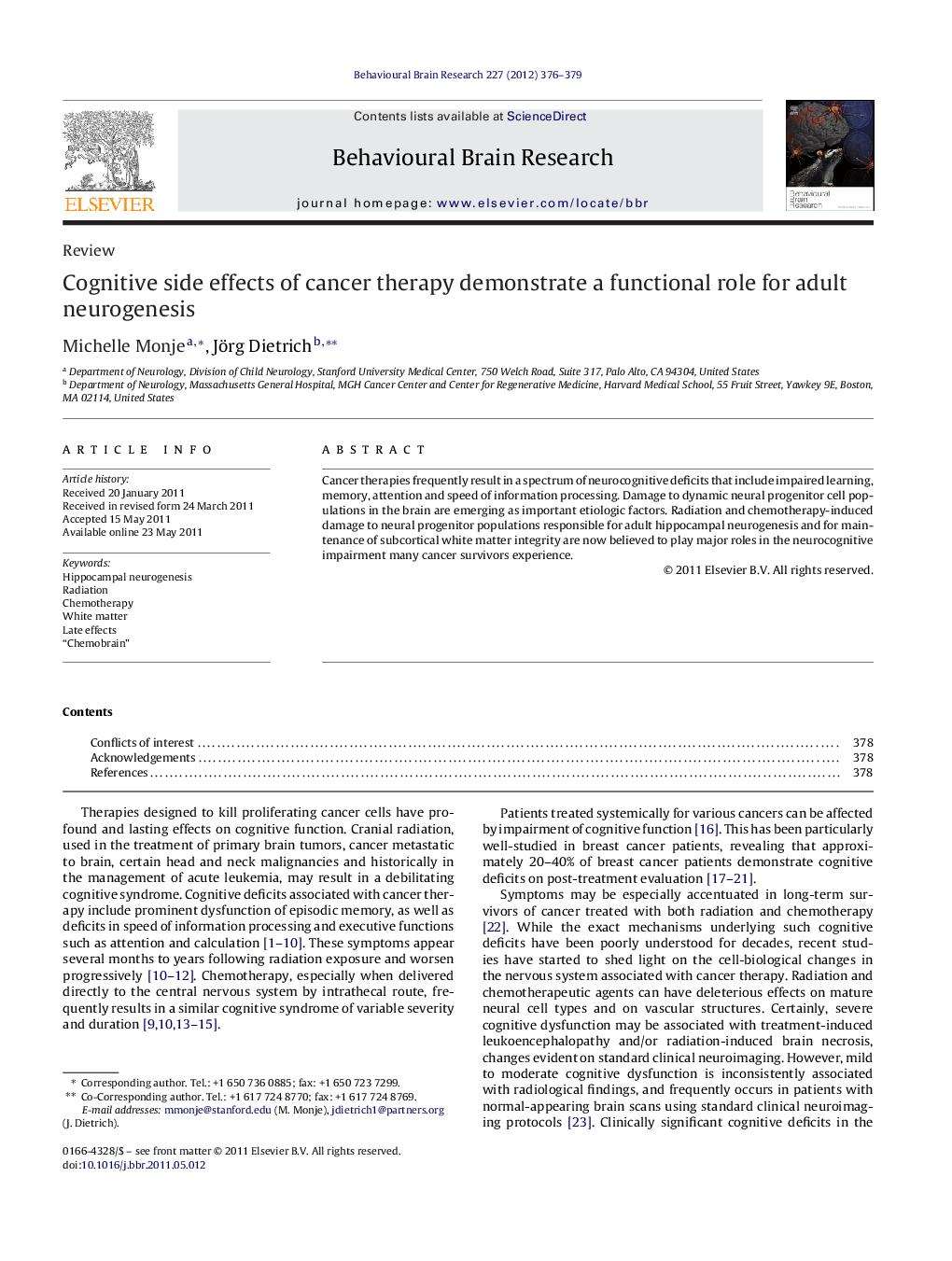| کد مقاله | کد نشریه | سال انتشار | مقاله انگلیسی | نسخه تمام متن |
|---|---|---|---|---|
| 4313234 | 1289991 | 2012 | 4 صفحه PDF | دانلود رایگان |

Cancer therapies frequently result in a spectrum of neurocognitive deficits that include impaired learning, memory, attention and speed of information processing. Damage to dynamic neural progenitor cell populations in the brain are emerging as important etiologic factors. Radiation and chemotherapy-induced damage to neural progenitor populations responsible for adult hippocampal neurogenesis and for maintenance of subcortical white matter integrity are now believed to play major roles in the neurocognitive impairment many cancer survivors experience.
► Cancer therapies frequently result in cognitive deficits that include dysfunction of memory.
► Cranial radiation therapy and many chemotherapy agents are now known to inhibit hippocampal neurogenesis and to damage subcortical white matter precursor populations.
► Injury to neural progenitor cell populations, particularly damage to hippocampal neurogenesis, is believed to account for much of the cognitive dysfunction patients experience after cancer therapy targeted to the central nervous system.
► The clinical consequences of cancer therapies supports a functional role for postnatal neurogenesis in normal cognition.
Journal: Behavioural Brain Research - Volume 227, Issue 2, 14 February 2012, Pages 376–379